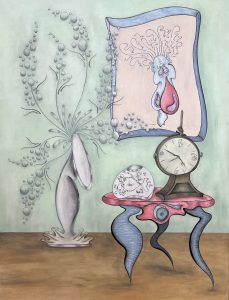I know I’ve been away for a while. Sometimes physician needs to heal thyself and these past six months tried to kill me. But I’m here. I’m writing. And I survived by applying the information I’m sharing with you.
In the first two parts to this Needs Alignment series (The Seven Keys to Happiness & Balancing Your Needs) I shared the basics of the Seven Universal Human Needs — a system I call NAM — the Needs Alignment Model.
Now that you understand the seven essential things every human needs, you might have a sense that you don’t seek everything on that list. To a certain extent, that is true. Although every human, no matter age, gender, or any other demographic, has all of those seven universal needs, individuals weigh one need as more vital than another.
As a quick review, here are the seven universal needs. Even if you have a firm grasp on this, take the time now to note areas in your life that satisfy each:
- Stability: Safety, security, and the things we need to survive. Housing, clothing, sleep, food. Financial matters. Career. The shadow of stability is fear. List the ways you keep yourself alive — safe. How’s your health? Are you living within your budget? Do you have a stable life or do you constantly experience crisis and upheaval? And take care: You can feel unsafe because of past trauma. Note that down, too.
- Stimulation: Our need for stimulation is the home of movement, sensation, action, and innate creativity (sexuality and procreation). If that need is unsatisfied or ignored, you experience shame and regret. If you’re ignoring the health of this need, your life is too risk-averse or too risky. Ask yourself: How is your Emotional Intelligence? What’s your risk quotient? What do you do for fun? And, most importantly: What do you criticise others for doing?
- Identity: This is the need to be appreciated for who you are. To be recognized as unique. If your identity need is healthy, you have healthy boundaries and you can exercise your will. If you experience humiliation (or imposter syndrome!), focus on this need. Consider your titles, your awards and achievements, or when others single you out because of who you are (whether positive or negative feedback).
- Connection: The need for connection is, arguably, the most powerful human need. We require others to survive. If you’re struggling with grief (isolation, reminiscence, sorrow), give this need the attention it deserves. You don’t need 100 friends — but you need someone, at least one person. Do you have a tribe? Do others reach out to you?
- Expression: Our need for expression is connected to every form of communication: how you speak your truth, give from your reality, and express your passion. When we are inauthentic, we harm our need for expression. Do you find you lie — even about little things (I can’t make it to the party because, uh, I’m sick. Yeah, that’s it.)? Do you talk too much (over sharing, interrupting others)? Do you keep what you think to yourself?
- Awareness: We satisfy our awareness need when we think, learn, intuit, dream, visualize. You satisfy your need for awareness when you read or learn a new skill, meet new people, have a daydream session, or attempt to understand a complex subject. Are you realistic? How accurate is your perception? Do you impose your “sense” on others, guessing what they think or feel? Do you daydream more than you exercise? Is learning easy or hard for you?
- Meaning: What is the purpose of your life and existence? When a person is not satisfying his or her need for meaning, he or she will feel like an outsider, disconnected from life. Life becomes meaningless. Or, often unrecognized, the person will live like he or she is a god and his or her life is more important than others. Religious zealots fall into this category.
You may notice you have a long list for some needs and then little to nothing for others. That’s not a surprise. We focus on different needs — often at the expense of others. Over the years, I’ve witnessed clients make careful investments, worry about insurance and estate planning, and focused on securing their property. These particular individuals are not adventurous and do not take a risk in any manner. However, what they fail to recognize is although they do not feel compelled to adventure, they still have that need. It’s just not a priority.
For others, living out of a backpack, never having a “boring” job, shunning investments, and any concept of settling down, is the chosen lifestyle. At some point, that adventure lifestyle results in no savings, no career security, and no home base. These lifestyle choices are not right or wrong and escape subjective judgment. But the choices we make — and the needs we focus on — will affect other needs we undervalue or ignore.
That individual choice results from personal history, temperament, life stage, and values. Here are two areas that can impact your personal choice:
Personal History
Your life experience — and generational life experience — has a major impact on what needs are important to you. If your grandmother, like mine, experienced the Great Depression, you may have been taught to pack your freezer with food, darn clothes instead of buying new, and hide money in your mattress! That life experience during the Great Depression caused the family to focus on security over other needs.
Or maybe a parent was super-successful and taught you career and income was more important than any other need. You have lots of awards and money — and an impressive title — so you are identity-focused. But you may lapse on connection and stimulation (when was your last vacation with your kids?).
Temperament
A bit too involved for this article, your temperament will strongly affect your need-focus. Temperament, or innate dispositions: How introverted or extroverted you are. If you prefer emotional reasoning or logic. To appreciate the differences, you should discover your temperament type (if you have not already done so).
- Artisans value stimulation, connection, and expression.
- Guardians value security and meaning.
- Rationals value stimulation, identity, and awareness.
- Idealists value connection and meaning.
When you were born, you had these preferences — and it can have a powerful impact on your behavior. It’s not often a Guardian type will break the law, abuse drugs, or have a child out of wedlock. But Artisans will. Idealists are connection-focused and value people over process every time. Rationals value awareness — rules and logic no matter feelings.
These are generalizations — and many factors can alter your personal expression of your needs. Your culture, your generation, your education… each nature and nurture aspect of what makes you you will shift your needs balance.
Imbalance
Preferring identity to connection does not mean something is wrong with you! Enjoying the party-party lifestyle and the stimulation it gives you does not make you less!
The ideal is that you are aware of what needs you have, how you express those needs — and if you need to shift your attention to have a more rewarding life!
Needs Ranking
So, how do you determine your personal ranking of your needs? How do you see where you are suffering an imbalance? Or what needs need your attention?
- You can review your life and behavior to determine how you prioritize your needs. You can do this on your own or with a life coach. List the good and not-so-good aspects of your life to check for imbalance. Remember: If an activity satisfies three or more needs, it will become addictive or a habit!
- You can take an assessment. Most online assessments only offer six out of the seven needs. Do your research and find one that is reputable. And I would suggest working with a coach when analyzing your results.
- You can dive deep and write every way you satisfy each need. This journaling exercise takes time — and you should revisit it over several days as items come to mind. What habits do you have? What bothers you about your life? What activities make you experience joy? What causes you stress? You will begin to notice patterns: Where you ignore a need, where you invest too much in a need, where you are balanced. Think Goldilocks.
For now, here’s are practical examples to raise your awareness:
- You read or study or are at your desk all the time. Learning is so important to you. That activity is satisfying your awareness need. Ask yourself: How many times have you worked out this week? Check your security need (health) which you may be ignoring.
- You have a hangover again, but the party was fun fun! But you forgot to pay your rent. There’s that security need you ignored!
- You’re stuck in a deadend job or in a career you don’t enjoy. But you love the title and the money. Maybe you should shift from focus on identity and security to expression and stimulation.
- You find yourself constantly on social media, needing to be out with friends, pining for your partner or kids… you need connection all the time or you feel sad and lost. You do whatever everyone else wants or expects. What about you? Have you fed your identity need lately?
Raising your awareness and putting your attention on the entire rainbow of your needs is a great start!



